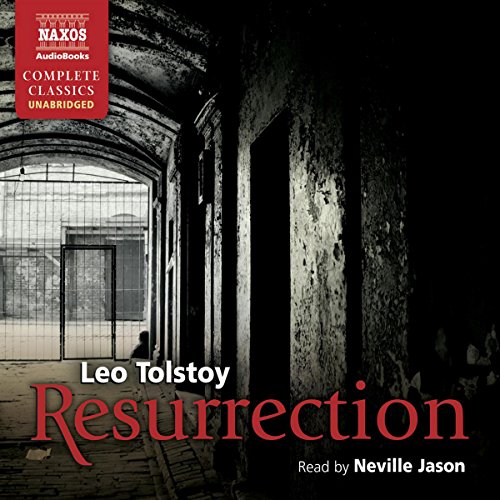Leo Tolstoy – Resurrection Audiobook
Leo Tolstoy – Resurrection Audiobook

text
**”Resurrection” by Leo Tolstoy: An Audiobook Summary**
*Published in 1899, “Resurrection” is the final novel by the renowned Russian author Leo Tolstoy. This profound literary work delves deep into themes of sin, redemption, social injustice, and the moral complexities of humanity. The audiobook rendition breathes life into Tolstoy’s rich narrative, allowing listeners to immerse themselves in a story that is as enlightening as it is thought-provoking.*
—
### **Plot Overview**
The narrative centers around **Prince Dmitri Ivanovich Nekhlyudov**, a wealthy and aristocratic landowner leading a life of privilege and indulgence. His world is turned upside down when he is summoned for jury duty in a criminal trial. The defendant is **Katerina Mikhailovna Maslova** (also known as **Katyusha**), a young woman he seduced and abandoned years earlier. Once an innocent and naive peasant girl, Maslova has since fallen into a life of prostitution and is now wrongfully accused of poisoning a client.
Despite clear evidence pointing to her innocence, a series of legal mishaps and societal prejudices lead to Maslova being unjustly sentenced to four years of hard labor in Siberia. Overcome with guilt and a sense of responsibility for her downfall, Nekhlyudov embarks on a journey of redemption. He becomes determined to overturn her conviction and, failing that, to accompany her to Siberia in an effort to atone for his past sins.
As Nekhlyudov navigates the convoluted Russian legal system, he confronts the stark realities of corruption, the dehumanizing conditions of the prisons, and the vast chasm between the wealthy elite and the impoverished masses. His transformative journey compels him to reevaluate his own values and the societal structures that perpetuate injustice.
—
### **Key Themes**
1. **Redemption and Moral Awakening**: Nekhlyudov’s quest to save Maslova serves as a catalyst for his personal transformation. His journey from selfishness to selflessness highlights Tolstoy’s exploration of the possibility of personal redemption through altruism and moral responsibility.
2. **Social Injustice and Critique of the Legal System**: Tolstoy offers a scathing critique of the Russian judicial system, exposing how bureaucratic inefficiency and class biases contribute to the suffering of the innocent and the powerless.
3. **The Hypocrisy of the Upper Class**: The novel scrutinizes the moral decay of the aristocracy, contrasting their superficial piety and charitable acts with their exploitation and neglect of the lower classes.
4. **Spiritual and Philosophical Reflections**: Interwoven throughout the narrative are Tolstoy’s contemplations on religion, ethics, and the meaning of true justice. The novel reflects his own philosophical beliefs, particularly his advocacy for a return to authentic Christian principles.
—
### **Audiobook Experience**
The audiobook format of “Resurrection” enhances the immersive quality of Tolstoy’s storytelling. Through skilled narration, listeners experience the emotional depth of the characters and the vivid portrayal of 19th-century Russian society. The oral rendition brings nuance to the dialogues and internal monologues, allowing for a more profound connection with the narrative’s moral and ethical dilemmas.
—
### **Conclusion**
“Resurrection” stands as a testament to Leo Tolstoy’s literary genius and his unyielding commitment to social criticism. The story is not merely a tale of personal atonement but a powerful indictment of systemic injustice and moral apathy. Through Nekhlyudov’s transformation, Tolstoy invites readers and listeners alike to reflect on their own values and the societal structures that influence them.
The audiobook serves as an accessible medium to engage with this classic work, offering a compelling experience that resonates with contemporary issues of inequality and the quest for personal and societal redemption. “Resurrection” remains a relevant and inspiring narrative, encouraging a reevaluation of what it means to lead a just and compassionate life.